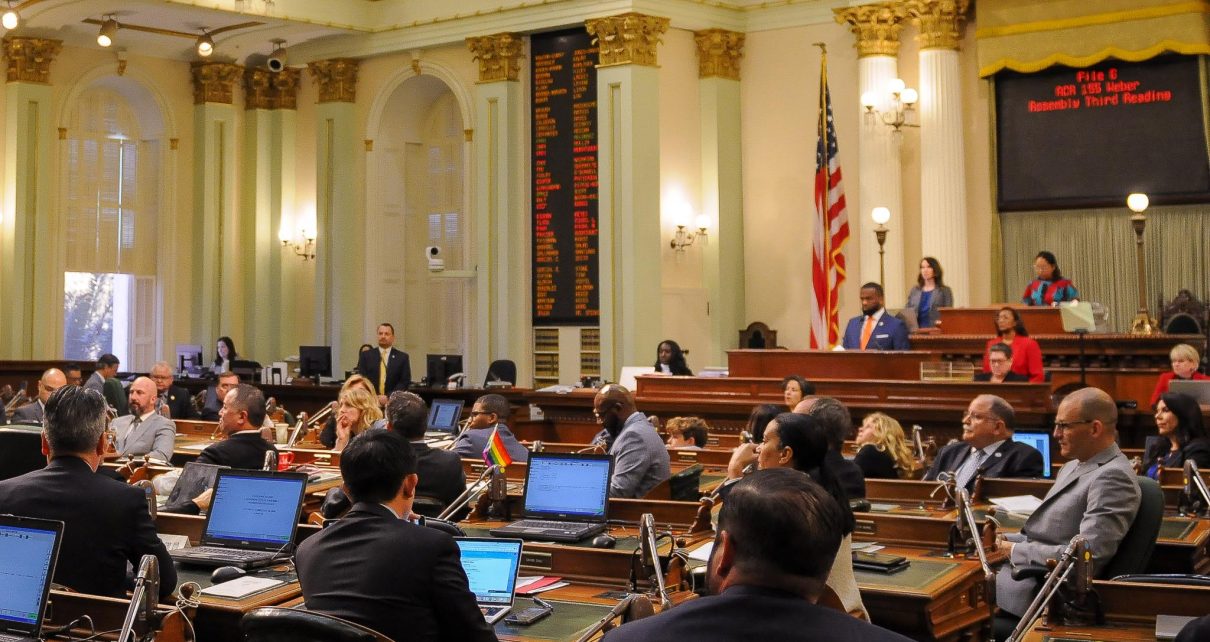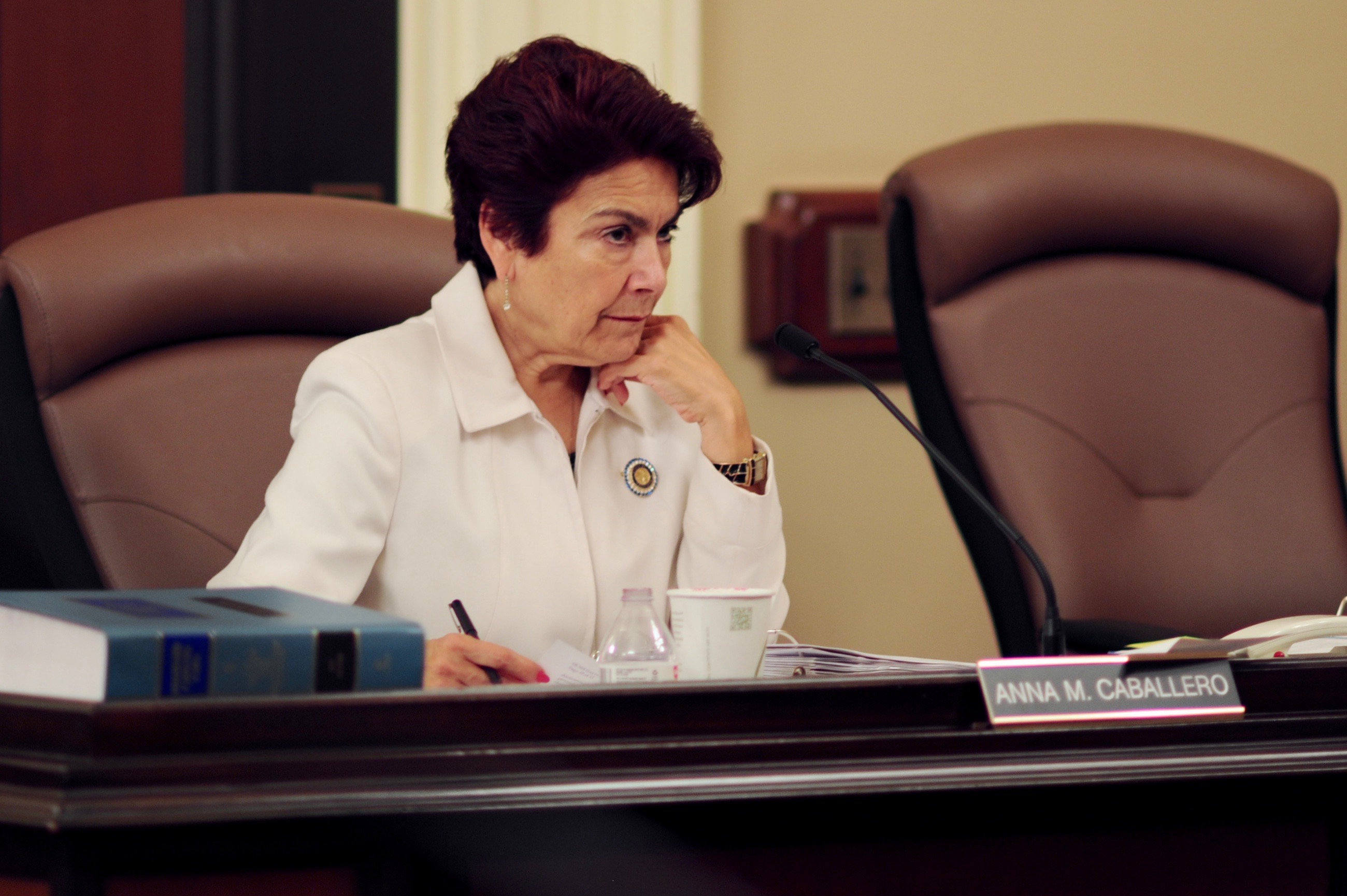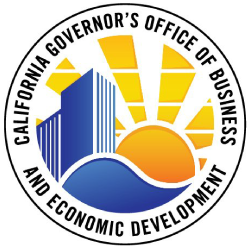
California State Assembly. (Photo: Kevin Sanders for California Globe)
California Enacts Economic Relief in Early Budget Action
There are several retroactive tax law changes contained in this bill
By Chris Micheli, February 12, 2022 5:35 pm
As part of the “early action” budget items, Senate Bill 113 (Budget and Fiscal Review Committee) was amended on February 2, passed the Legislature on February 7, and signed into law by Governor Gavin Newsom on February 9 as Chapter 3. SB 113 enacted economic relief for businesses and individuals in this state. There are several retroactive tax law changes contained in this bill.
Section 1 of the bill adds Government Code Section 8654.2 to create the California Emergency Relief Fund as a special fund in the State Treasury. The purpose of this fund is to provide emergency resources or relief relating to state of emergency declarations by the Governor.
First, $150 million in General Fund money is transferred to the California Emergency Relief Fund for purposes relating to the COVID-19 emergency proclaimed by the Governor on March 4, 2020.
Second, that $150 million is appropriated to the Office of Small Business Advocate within the Governor’s Office of Business and Economic Development for a closed round to fund small business grant applications waitlisted from previous rounds of the California Small Business COVID-19 Relief Grant Program.
Section 2 of the bill adds Government Code Section 16429.7 to provide that any assistance or relief authorized by and provided to an individual by a utility applicant under the California Arrearage Payment Program (CAPP) is treated in the same manner as the federal earned income refund for the purpose of determining the individual’s eligibility to receive benefits or amounts of those benefits.
In addition, any amount provided is not taken into account as income nor for purposes of determining the eligibility of that individual for benefits or assistance under any state or local program.
Section 3 of the bill adds Health and Safety Code Section 116773.5 to provide that any assistance or relief authorized by and provided by a community water system or a wastewater treatment provider to an individual is treated in the same manner as the federal earned income refund for the purpose of determining the individual’s eligibility to receive benefits or amounts of those benefits.
In addition, any amount provided is not taken into account as income nor for purposes of determining the eligibility of that individual for benefits or assistance under any state or local program.
Section 4 of the bill amends Revenue and Taxation Code Section 6902.5 regarding the election to claim a sales or use tax refund for the production tax credit that is currently capped at $5 million per taxpayer through the end of the 2022 tax year. This section is amended to eliminate the cap at the end of the 2021 tax year, which is one year earlier than current law provides pursuant to AB 85 enacted in 2020.
Section 5 of the bill amends Revenue and Taxation Code Section 12209 to eliminate the cap on the use of business tax credits under the Personal Income Tax Law at the end of the 2021 tax year.
Section 6 of the bill amends Revenue and Taxation Code Section 17039 allowing certain credits under the Personal Income Tax Law to reduce the net tax below the tentative minimum tax are limited for tax years through 2021, and then adding for the 2022 tax year going forward the credit relating to the elective tax under the Small Business Relief Act.
Section 7 of the bill amends Revenue and Taxation Code Section 17039.3 to eliminate the cap on the use of business tax credits under the Personal Income Tax Law at the end of the 2021 tax year.
Section 8 of the bill amends Revenue and Taxation Code Section 17052.10 dealing with the pass-through election by qualifying entities to include guaranteed payments and exclude a limited liability company that is disregarded for federal tax purposes if specified conditions are met. These changes apply for tax years January 1, 2021 through December 31, 2025.
Section 9 of the bill adds Revenue and Taxation Code Section 17131.16 to exclude from gross income under the Personal Income Tax Law from January 1, 2021 through December 31, 2025 a bill credit received by a customer from a community water system or wastewater treatment provider pursuant to the Water and Wastewater System Payments Under the American Rescue Plan Act of 2021.
Section 10 of the bill adds Revenue and Taxation Code Section 17131.17 to exclude from gross income under the Personal Income Tax Law from January 1, 2021 through December 31, 2025 a bill credit received by a customer from a utility applicant under the California Arrearage Payment Program (CAPP), pursuant to the California Arrearage Payment Program Under the American Rescue Plan Act of 2021.
Section 11 of the bill adds Revenue and Taxation Code Section 17158.2 to exclude from gross income under the Personal Income Tax Law beginning January 1, 2020 any amount awarded as a restaurant revitalization grant pursuant to Section 9009c of Title 15 of the United States Code.
Section 12 of the bill adds Revenue and Taxation Code Section 17158.3 to exclude from gross income under the Personal Income Tax Law beginning January 1, 2019 any amount awarded as a shuttered venue operator grant pursuant to Section 9009a of Title 15 of the United States Code.
In addition, it excludes taxpayers that are a publicly-traded company or does not meet the reduction from the gross receipts requirements in the federal Consolidated Appropriations Act, 2021 (Public Law 116-260).
Section 13 of the bill amends Revenue and Taxation Code Section 17276.23 to eliminate the suspension of the net operating loss deduction under the Personal Income Tax Law beginning January 1, 2022.
Section 14 of the bill amends Revenue and Taxation Code Section 19900 dealing with payments to qualifying pass-through entities to include guaranteed payments. This applies from January 1, 2021 through December 31, 2025.
Section 15 of the bill amends Revenue and Taxation Code Section 19902 to allow partnerships to be a qualified entity for purposes of the pass-through election for certain qualifying entities. This applies from January 1, 2021 through December 31, 2025.
Section 16 of the bill amends Revenue and Taxation Code Section 23036.3 to eliminate the cap on the use of business tax credits under the Corporation Tax Law after January 1, 2022.
Section 17 of the bill adds Revenue and Taxation Code Section 24308.2 to exclude from gross income under the Corporation Tax Law beginning January 1, 2020 any amount awarded as a restaurant revitalization grant pursuant to Section 9009c of Title 15 of the United States Code.
Section 18 of the bill adds Revenue and Taxation Code Section 24308.3 to exclude from gross income under the Corporation Tax Law beginning January 1, 2019 any amount awarded as a shuttered venue operator grant pursuant to Section 9009a of Title 15 of the United States Code.
In addition, it excludes taxpayers that are a publicly-traded company or does not meet the reduction from the gross receipts requirements in the federal Consolidated Appropriations Act, 2021 (Public Law 116-260).
Section 19 of the bill adds Revenue and Taxation Code Section 24308.4 to exclude from gross income under the Corporation Tax Law from January 1, 2021 through December 31, 2025 a bill credit received by a customer from a community water system or wastewater treatment provider pursuant to the Water and Wastewater System Payments Under the American Rescue Plan Act of 2021.
Section 20 of the bill adds Revenue and Taxation Code Section 24308.5 to exclude from gross income under the Corporation Tax Law from January 1, 2021 through December 31, 2025 a bill credit received by a customer from a utility applicant under the California Arrearage Payment Program (CAPP), pursuant to the California Arrearage Payment Program Under the American Rescue Plan Act of 2021.
Section 21 of the bill amends Revenue and Taxation Code Section 24416.23 to eliminate the suspension of the net operating loss deduction under the Corporation Tax Law beginning January 1, 2022.
Section 22 of the bill provides legislative findings and declarations to comply with Revenue and Taxation Code Section 41 including goals and objectives as well as performance indicators.
In addition, it requires the LAO and FTB to review data related to the shuttered venue operator grants and restaurant revitalization grant programs.
Section 23 of the bill provides legislative findings and declarations to comply with Revenue and Taxation Code Section 41 related to the financial relief to California businesses and residents including working with the State Water Resources Control Board.
Section 24 of the bill provides legislative findings and declarations to comply with Revenue and Taxation Code Section 41 related to the financial relief to California businesses and residents including reporting by the Department of Community Services and Development.
Section 25 of the bill provides legislative findings and declarations that this act merely ends the temporary limitation or suspension of existing tax expenditures one year earlier than currently provided and does not contain additional information related to the goals, purposes, and objectives of those tax expenditures.
Section 26 of the bill provides legislative findings and declarations that the goal of the tax expenditures as amended by this act is to provide tax relief to small businesses facing unprecedented economic hurdles due to COVID-19.
Section 27 of the bill provides three legislative findings and declarations that SB 113 serves a public purpose and does not constitute a gift of public funds.
Section 28 of the bill states that SB 113 is a bill related to the Budget Bill and will take effect immediately.
- Legislative Intent Does Not Equate to a Mandate - April 27, 2024
- Frequently Asked Questions about State Agency Ethics Training - April 26, 2024
- Frequently Asked Questions about When Elected Officials Take Office - April 25, 2024





One thought on “California Enacts Economic Relief in Early Budget Action”